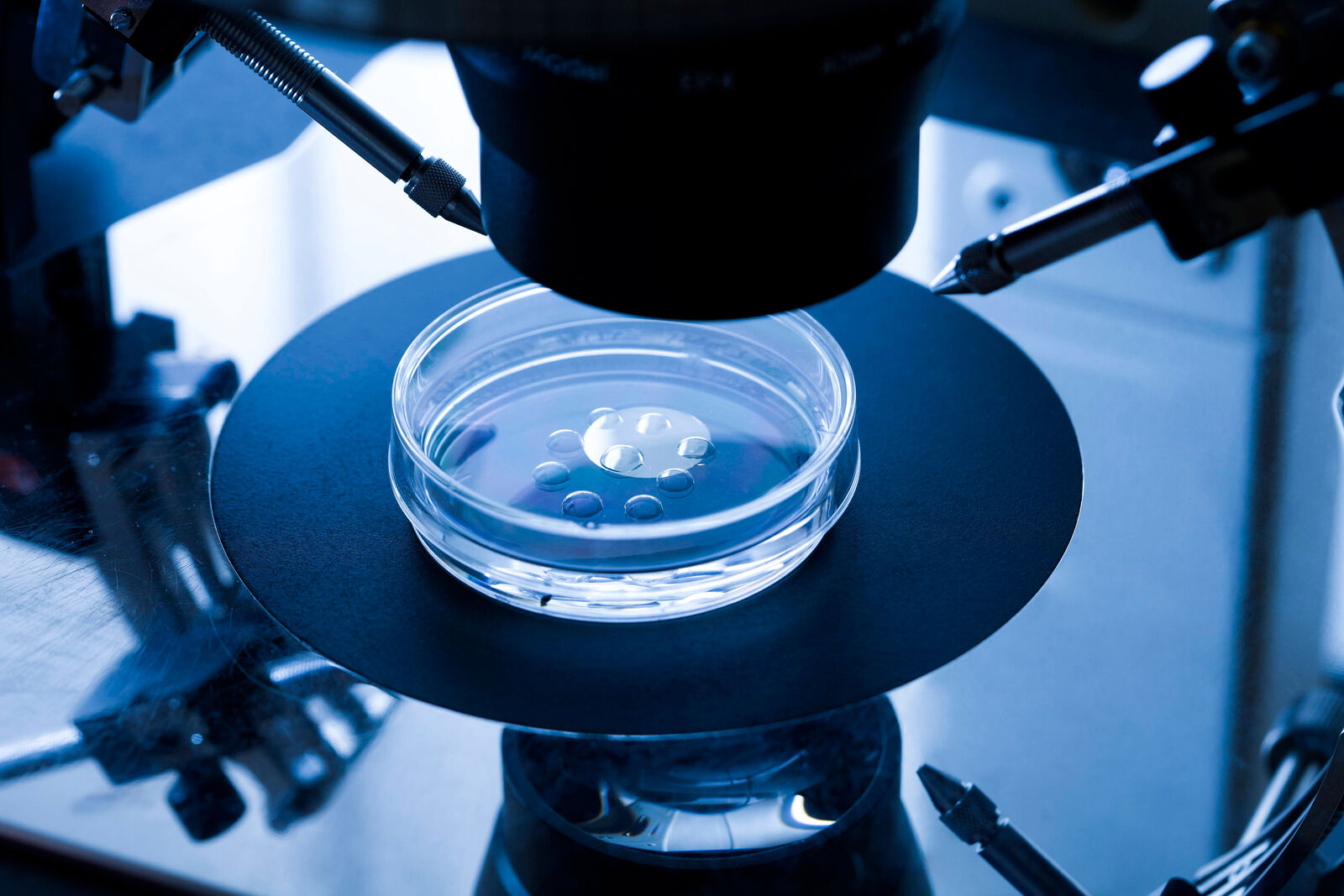
When To Seek Help

If you are having trouble conceiving, know that you are not alone. Everyone's timeline is different, and each fertility experience is unique. Nearly 1 in 6 of those trying to conceive face fertility challenges. We understand that seeking fertility advice is a big step to take, but there are many options and caring experts available to help you along your journey to parenthood.
Deciding When It’s Time To Seek Help

Fertility is impacted by many factors. The sooner your issue is diagnosed and treated, the better your chances of conceiving.
In general, consider consulting a fertility specialist if:
You are a female under 35, and have been trying to conceive for at least 12 months.
You are over 35 and have been trying to conceive for 6 months or more.
Your menstrual cycles are irregular or very far apart (a regular cycle is between 26 and 34 days).
You have been diagnosed with endometriosis, PCOS (polycystic ovarian syndrome), or have had a previous pelvic infection.
You have had more than two miscarriages.
You have been diagnosed with a sperm problem or have a history of infection (e.g., mumps), injury or surgery on your testicles.
You or your partner has a known health problem such as diabetes, high blood pressure, or a history of cancer that was treated with radiation or chemotherapy.
You are at risk of early menopause, such as having a family history of early menopause.
You simply don’t have access to sperm, eggs or a uterus and thus need assistance to have a child.
Common Causes of Fertility Challenges
Causes of fertility challenges are almost equally split between females and males. The remaining causes are diagnosed as unexplained. Don’t worry – even if the cause cannot be diagnosed, there are still many ways we can help.
Below are some of the most common causes underlying fertility challenges:
Fertility declines with age. It generally begins in the late 20s, then drops off more steeply by age 37. In and past the late 40s, it’s very rare to conceive a child naturally, because aging eggs don’t fertilize, implant, or respond to stimulation medications as well as younger eggs. Older eggs also present an increased risk of pregnancy loss and babies with chromosomal abnormalities.
Amenorrhea means the absence of menstrual periods. There are two types: primary and secondary. Primary is often diagnosed when a female does not have any menstrual periods before the age of 16. Secondary can occur when someone has previously menstruated, but then stops menstruating for 3-6 months or longer.
Endometriosis is a common condition that occurs when endometrial tissue, which lines the uterus, grows outside the uterine cavity. This tissue may implant and grow anywhere in the body, most commonly within the abdominal cavity.
Endometriosis can hinder conception by producing scar tissue, inflammation or adhesions which bind the ovaries, fallopian tubes and intestines together. These adhesions can interfere with the release of eggs from the ovaries or the pick-up of eggs by the fallopian tube, thereby reducing the chances of conception.
To produce a fertilizable egg each month, a series of complex steps must take place. One step out of place and you might not be able to get pregnant – making ovulatory conditions the most common cause of female infertility.
Some of the conditions that can interfere with, or prevent, ovulation, include:
Polycystic Ovarian Syndrome (PCOS)
Thyroid disease
Hyperprolactinemia, a hormone that stimulates milk production and suppresses ovulation
Low levels of fertility hormones (Hypothalamic Amenorrhea, FSH and LH)
Premature Ovarian Failure
Extreme weight loss or weight gain
Excessive exercise
Eating disorders
Polycystic ovary syndrome (PCOS), or polycystic ovary disease (PCOD), is an endocrine disorder. It is one of the most common hormone problems women of reproductive age face. Despite the name, ovarian cysts are not usually present, although some women have many small follicles visible on ultrasound. Egg production is affected by the hormone imbalance. Some women with PCOS experience irregular ovulation, often having less than eight menstrual cycles per year. Other women with PCOS can have more than one period of bleeding per month and each episode can be lengthy.
Other symptoms can include fat around the belly area, facial hair, acne, and thinning of hair on the top of your head.
A pregnancy that is lost prior to 20 weeks’ gestation is known as a miscarriage. It occurs in 15-20% of pregnancies, with the risk increasing with age (by age 45, the risk is greater than 50%). Most miscarriages occur within the first trimester. If someone experiences more than one miscarriage, it is known as recurrent pregnancy loss.
The most common cause of recurrent pregnancy loss is an abnormal chromosome pattern in the embryo. Some other potential factors may include:
Abnormalities in the shape of the uterus
Uterine fibroids
Genetic abnormalities
Hormonal disorders
Immunological factors
Infection
Sperm issues account for approximately 40% of fertility challenges. There are several factors that could affect the quantity and health of a male’s sperm, including Azoospermia (the absence of sperm in the ejaculate) or Oligo-astheno-teratospermia (OATS) (sperm of low concentration, reduced mobility and abnormal morphology.)
Nutrition and exercise can also contribute to sperm issues. Unhealthy habits such as smoking, drinking and recreational drug use can have a detrimental effect on male fertility.
The fallopian tubes play a crucial role in successful fertilization and pregnancy. As many as 25% of fertility-challenged females learn that damaged tubes are the cause. Modern techniques, however, have enabled many females with tubal damage to have healthy pregnancies.
Unexplained infertility is defined as more than three years of infertility even though ovulation, semen, fallopian tubes and pelvic cavity all appear to be normal. Depending on their age and the length of infertility, these individuals have a 30% or lower chance of conceiving naturally.
If you suffer from unexplained infertility, our Heartland Fertility physicians will discuss it with you and may recommend advanced infertility treatments, such as IUI and IVF.
If it's taking you longer than you expected to get pregnant, discuss it with your family doctor first. When you're ready, our dedicated team of professionals are here for you. They will work with you to develop a personalized treatment plan that optimizes your chances of conceiving.
Ready to get
started?
We make it easy to begin. Whether you're interested in IUI, IVF, or fertility testing, our compassionate team is here with expert care and guidance, so you can take your next step with confidence.